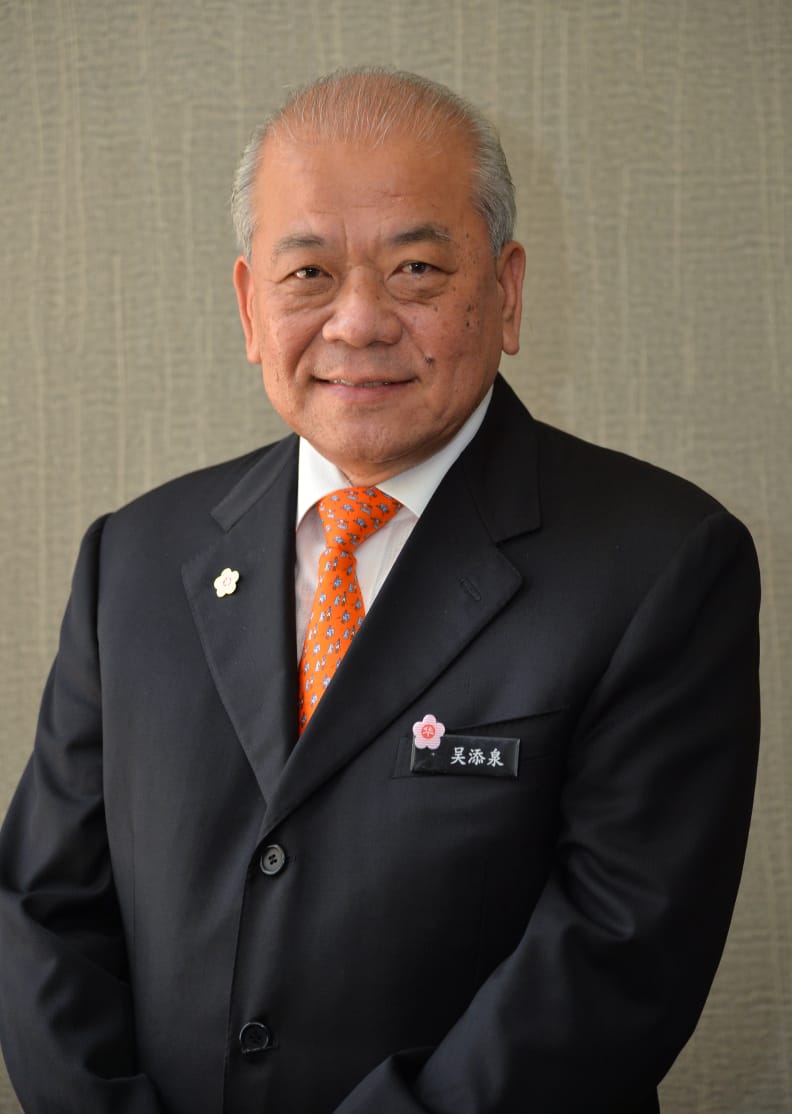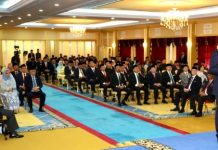KOTA KINABALU: Tan Sri T.C Goh, President of the Federation of Chinese Associations Malaysia (Huazong) and the Federation of Chinese Associations Sabah (FCAS), has urged the Sabah state government to swiftly identify and take stern action against those responsible for the RM5 billion bad debt faced by the Sabah Development Bank (SDB), which is estimated to incur annual losses of RM500 million.
Expressing shock over the revelation by State Finance Minister Datuk Seri Masidi Manjun, in the state assembly on Wednesday, Goh contended that despite the new SDB leadership taking office in July last year, in light of accountability and the massive losses involved, the government must thoroughly investigate the matter and take the most severe actions against the previous negligent leadership.
“This is necessary to provide a clear explanation to the people, as the losses incurred involved public funds,” he stressed.
He also called for the government to seek more expert assistance and to swiftly implement drastic and more effective reforms, to stop the ‘bleeding’.
He emphasized that as leaders or board members, it is their duty and responsibility to safeguard the interests of the institution or company, and not to engage in any acts of favoritism or abuse of power.
Goh, who is also a member of the State Economic Advisory Council (SEAC) was responding to Sabah Finance Minister Datuk Masidi Manjun’s disclosure in the state legislative assembly yesterday. He disclosed that as of the end of May this year, SDB had lent out a total loan amount of RM6.6 billion, of which RM5 billion or 75% was classified as “non-performing loans” (NPLs).
Commenting on the devastating impact of these bad debts on the bank’s performance last year and this year, Goh said it clearly shows that SDB which is a state government-linked company (GLC) is facing serious mismanagement issues, which require full attention and necessary intervention for correction.
He was especially puzzled and shocked by Masidi’s citing of three major shortcomings and mismanagement at the bank i.e. “creative accounting,” “insufficient provisions,” and “deteriorating management”.
“If all these are true, they should never occur in a professional bank or financial institution,” he said.
Masidi revealed that SDB was found to have applied creative accounting by providing fresh loans to borrowers to cover up their NPLs, besides there had been a total management meltdown in checks and balances for approving loans to unqualified companies.
“SDB has been giving out loans to borrowers, and when the borrowers are unable to pay, creative accounting is applied.
“New loans are created to pay for the overdue repayments so that these loans would not go into the non-performing category.
Masidi explained that the new loan principal and interest overdue from borrowers on paper made it appear as though the original amount had been repaid and “collection” was done with the interest owed showing as “income earned” in the bank’s books.
“The NPL numbers will also be reduced as these loans are now seen to be performing,” he said.
Goh expressed deep regret that such rogue practices allowing the same borrowers to accumulate larger and larger loans, had inevitably resulted in SDB inheriting an ever-expanding hole, which is incomprehensible.
He added that what is even more incomprehensible, is that the bank did not take any legal action to recover the bad debts during the said period, resulting in a vicious cycle and expanding bad debts, as well as the bank continually facing funding issues.
Goh thus said that people have high expectations for the new board or leadership of the bank, believing it should have the determination and actions to comprehensively reform the bank. In line with this, he suggested the following actions:
1. Take all necessary actions against those involved in past negligence which caused the bank to incur such enormous bad debts.
2. Implement stricter loan recouping actions against borrowers, reassess borrowers’ performance, and financial restructuring backgrounds.
3. Appoint more experts to provide necessary professional consultation and services.
4. Establish professional and strict lending conditions and standard operating procedures (SOPs), and not be described as the “last and only hope” for borrowers in the market.
5. Outline a new operational or action blueprint, establish clear goal directions, and provide authoritative, significant, and effective support and services for the state government and state economic development.-pr/BNN






